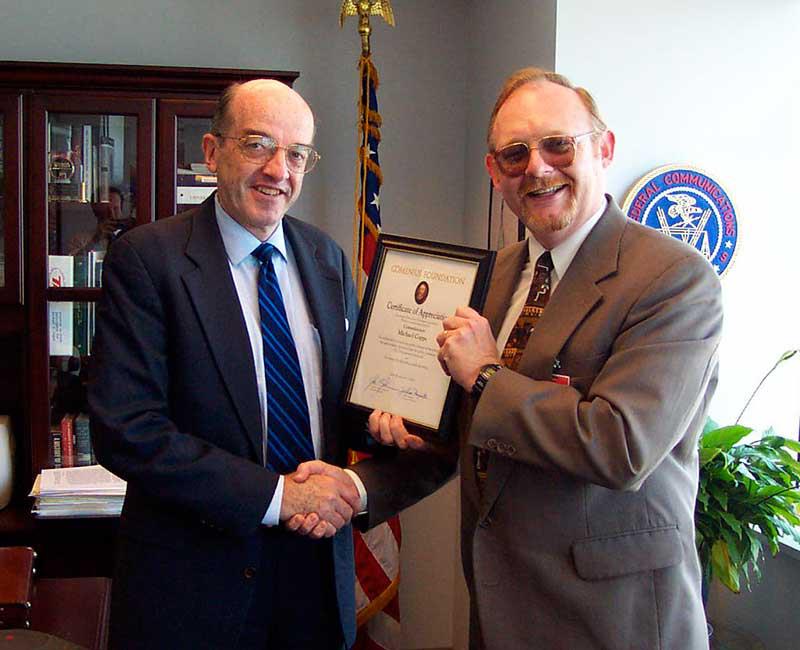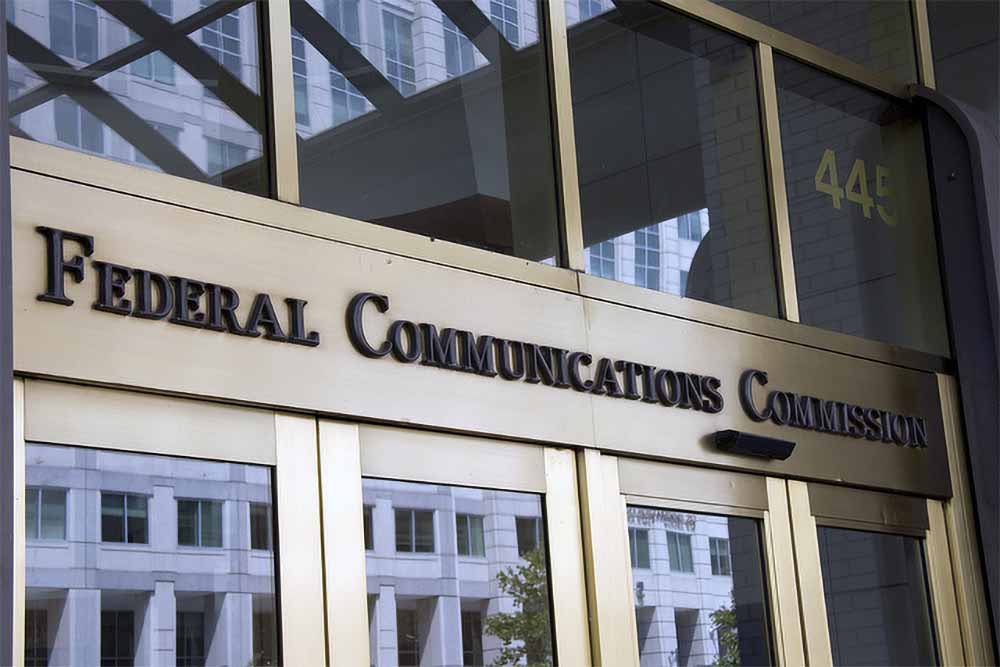Proposed deregulation of media threatens free exchange of information
By John P. Jackman
This editorial first appeared in the Winston-Salem Journal – 3/9/2002
There’s a major battle underway. It’s not in Afghanistan, it’s in Washington. And the battle is not about terrorism, but about whether a tiny group of gigantic companies can control all the news you hear and read, the shows you see, and most importantly the ads you see.
Every regulation that limits media ownership is under attack right now, either in the courts, or by the deregulation-minded FCC chairman, Michael Powell. Rules that limit how many stations a single company can own, and whether the same company can also own the newspaper, the radio stations, and the cable system in the same community are ready to be trashed.
The media industry is already mainly controlled by eight huge companies, a number that many analysts think will shrink to two or three after the massive bout of mergers that deregulation would bring.
David Lieberman, financial reporter for USA Today, reports that the deregulation would make it possible for a single CEO to run AOL Time Warner, NBC, Clear Channel radio and The New York Times. What’s more frightening is that this massive resulting company would be able to own the TV stations, the radio stations, the newspaper, and the cable company in your town.
Most disturbing about this concentration of ownership is the unregulated and near-complete control over information that this places in the hands of a small number of very powerful corporations. Our democracy is based on the free exchange of information, on an open marketplace of ideas. This very concept is threatened right now.
Former FCC chairman Reed Hundt says “It’s an experiment with the underpinnings of democracy. There isn’t any consumer demand for this consolidation. Not a single person in America would say it’s a good idea. It’s exclusively driven by ideology and business interests.”

John Jackman presents award to FCC commissioner Michael Copps for working to preserve diversity in media in 2003.
Deregulation advocates poo-poo these dark predictions. But the history of media deregulation does not inspire hope. The proponents of the Telecom Deregulation Act of 1996 made rosy promises: there would be more competition, cable rates would decrease, the V-Chip would help parents control their children’s TV watching, there would be competition in local telephone service. Consumer groups complained that the rosy picture wouldn’t happen, that the specifics of the bill gave away too much power to already powerful regional monopolies. They pointed out that though there were many high-sounding ideas in the bill, there was no enforcement, no “teeth” to compel local monopolies to cooperate.
What was the result? Stories abound in the industry of high-fives and huge parties in the upper management of media companies, because they knew very well that the bill they had pushed through gave them liberty without responsibility. Five years later, the Baby Bells that owned the last mile of wire to your house hemmed and hawed and never let the competition get actual access, the V-Chip is a joke, new cable companies never got a toe into existing markets, the big players have merged into even stronger monopolies, cable rates have risen at three times the rate of inflation. The consumer advocates were right; the “rosy promisers” were wrong.Click here to read about the history of deregulation
after the Telecom Act of 1995
The Rev. John Jackman is Executive Director of Comenius Foundation, an independent nonprofit based in Lewisville, NC. He is an award-winning television producer and a member of the Society of Motion Picture and Television Engineers. Comenius Foundation advocates for reform in television programming.

